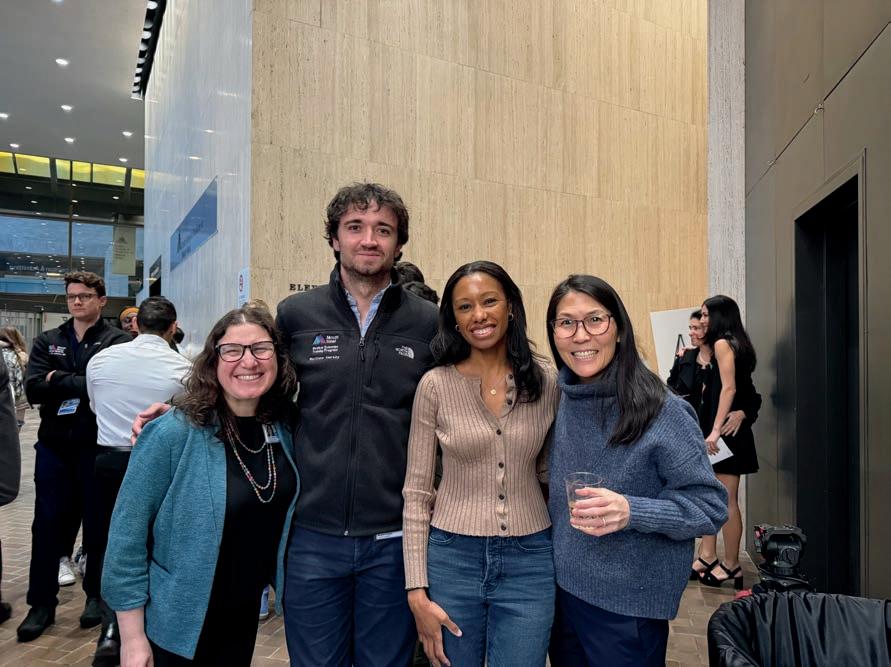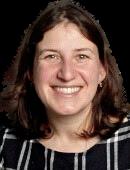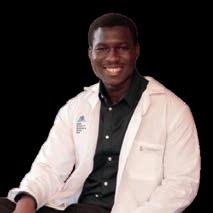2025 ANNUAL REPORT

MEDICAL SCIENTIST
TRAINING PROGRAM




The Mount Sinai Medical Scientist Training Program leadership team is dedicated to the success and well-being of every trainee.We bring a shared commitment to mentorship, academic and professional development, and an inclusive, supportive environment. From individualized advising to program innovation and day-today operations, we work collaboratively to guide students through each phase of their physician-scientist journey.

she/her/hers
JAIME CHU, MD Associate Director, Program Development and Career Planning


MATT HERSEY Program Coordinator
he/him/his

TALIA SWARTZ, MD, PHD Director
she/her/hers

BIANCA TAYLOR, MSED Administrative Director
she/her/hers
Dear MSTP Community,
What a whirlwind year it has been in biomedicine! Despite the challenges, our MSTP community has persevered and thrived, showing remarkable strength, resilience, and innovation.
This year, our school excitedly launched the ASCEND curriculum, a transformative update. ASCEND streamlines training, allowing earlier clinical integration, more direct clinical feedback, and enhanced one-on-one mentorship to better support our students.The new structure will allow MSTP students to engage in clinical clerkships before their PhD with enhanced translational implications for their dissertation research and greater flexibility in transitions.
This year, we launched MSTP Horizons, a new monthly programming initiative supporting short-term and long-term planning. Led by our MSTP leadership team, Horizons helps students navigate critical transitions— from identifying mentors and planning rotations to moving between MD and PhD phases and back. It also includes our MD-PhD Clinical Refresher, which has been revamped to align with the ASCEND curriculum, offering a more streamlined process with enhanced clinical feedback and one-on-one mentorship.
We’ve also embraced technology by integrating AI into our curriculum, giving every student access to ChatGPT Edu and exploring ongoing initiatives to integrate AI into the teaching, learning, and research environments.
Our students have truly shined, securing prestigious F30 and F31 awards, contributing to impactful publications, and achieving outstanding match outcomes, particularly in research residencies. We are pleased to report that our research residencies have reached an all-time high in match outcomes, reflecting our commitment to supporting physician-scientist career pathways.
This year, we welcomed an External Advisory Board, whose insightful feedback reaffirmed our program’s leadership in the field and provided valuable guidance as we prepare for the renewal of our NIGMS training grant.
Finally, amid these transformative times, we are deeply grateful for the steadfast support of our institution.We celebrate Dr. Dennis Charney’s incredible 18-year tenure as dean and his unwavering advocacy for physician-scientist training.We also warmly welcome Interim Dean Dr. Eric Nestler, whose dedication to our mission continues to inspire us.
Thank you all for being such a vital part of our MSTP family.Together, we’re shaping the future of biomedical research and clinical care.
Best wishes,
Talia H. Swartz, MD, PhD
Senior Associate Dean for MD-PhD Education Director of the Medical Scientist Training Program

The Mount Sinai Medical Scientist Training Program (MSTP) is dedicated to training the next generation of physician-scientists through an integrated and supportive dual-degree experience. Our students engage in rigorous medical and scientific training while developing the skills needed to lead at the intersection of research and patient care.

Our curriculum is designed to meet the evolving demands of 21st-century health care and research.With early clinical integration, flexible re-entry points, and tailored programs such as MSTP TREK, MSTP Horizons, and the MSTP Clinical Refresher, students receive comprehensive support across every phase of training.The new ASCEND curriculum enhances this foundation with a strong emphasis on foundational science, social justice, health systems, and leadership.We are committed to fostering a collaborative, supportive community that nurtures resilience and prepares our students for impactful careers in academia, industry, and beyond.
We pursue innovative approaches to education, research, and patient care, combining the best traditions of biomedicine and health care delivery with the principles and entrepreneurial thinking of a startup, to uncover novel insights about disease and health. Building this culture of innovation requires making large investments and taking a transformative approach to discovery, which means taking risks and disrupting the status quo. In this way, we are transforming the practice of medicine while reinventing medical research to produce radically better outcomes for patients.
The Icahn School of Medicine at Mount Sinai advances science, medicine, and health care delivery for the benefit of humanity through a culture of excellence, innovation, collaboration, and belonging. We conduct groundbreaking research; educate and nurture the next generation of exceptional clinicians, researchers, teachers, and leaders; and deliver the most advanced compassionate care with an unwavering commitment to health equity.

The ASCEND curriculum at the Icahn School of Medicine at Mount Sinai offers exciting new opportunities tailored to the unique needs of MD-PhD students. With a focus on flexibility, integration, and career development, ASCEND enhances both clinical and research training.These are the six features we’re most excited to share:
MSTP TREK Academy
Scan to learn more about the curriculum
A focused program on resilience and leadership, TREK equips students with skills in professionalism, networking, and mentorship, creating a foundation for success in both research and clinical environments.
Biomedical Sciences Core Curriculum
This enhanced core provides a rigorous, evidence-based framework with Journal Club + Problem Solving sessions, Technology Studios, and Major Content Reviews, ensuring students build a strong research foundation.
MSTP Horizons
Monthly sessions guide students through the unique challenges of MD-PhD training, with a focus on finding labs and transition planning, balancing responsibilities, career planning, and wellness strategies.
Guided by MSTP TREK and Horizons, students engage in two three-week lab rotations and one-on-one meetings with MSTP leadership, MTA directors, faculty, and peers to identify mentors and build their research community.
Early Clinical Integration with Flexibility
Students can complete three clerkship blocks before starting their PhD.This provides early clinical exposure or flexibility to catch up on progression requirements as needed.
Flexible Re-Entry Points
The curriculum allows for seamless transitions back into MD training with re-entry opportunities twice a year, in February or May, to allow for individualized training pathways.









The 2024 MSTP Retreat, held September 20–22 at the Edith Macy Conference Center, brought together students, faculty, and alumni for a weekend of scientific exchange, mentorship, and community. Highlights included a powerful keynote by Dr. Azza Idris (Class of 2001), Principal Investigator at the Ragon Institute, who shared insights from her career as a physician-scientist at the forefront of immunology research. Dr.Talia Swartz opened the retreat with a welcome and state-of-the-program address, followed by thoughtful contributions from Dr. Eric Nestler, an engaging alumni panel featuring Drs.Tobias Cohen, Jason Cook, and Azza Idris, and an inspiring “What Success Looks Like” session led by Dr. Camila Coelho. Student research was showcased through poster sessions and talks by Dr. Samantha Brown, Jerrel Catlett, and Christian Porras. Set against the backdrop of early fall foliage and guided by the spirit of connection and curiosity, the retreat reaffirmed the strength and shared purpose of the MSTP community.



MSTP Horizons is a yearlong, small-group advising and professional development course designed specifically for MDPhD students at Mount Sinai. Led by Drs. Jaime Chu and Talia Swartz, the series equips trainees with the tools, insights, and support needed to navigate the complexities of dual-degree training and build fulfilling physician-scientist careers.Through monthly, interactive sessions, students explore core topics such as laboratory rotation planning, developing effective mentor relationships, research residency preparation, and the strategic use of protected time and funding mechanisms.The course also encourages reflection and planning through Individual Development Plans (IDPs), while tackling timely topics like physician-scientist leadership in advancing health equity.

MSTP TREK Academy (Training in Resilience and Research Excellence for Knowledge-seekers) is a four-week, skills-focused onboarding course designed for MD-PhD students beginning their dual-degree training at the Icahn School of Medicine at Mount Sinai.TREK Academy empowers incoming physician-scientist trainees with the mindset, strategies, and support systems needed to thrive in the rigorous MSTP environment.Through interactive workshops, individualized mentorship meetings, and curated online modules, students build core competencies in resilience, leadership, mentorship, and research planning.Topics span stress management and professional identity formation to lab selection, inclusive leadership, and developing an IDP.With a strong emphasis on self-reflection, networking, community building, and long-term career navigation, TREK Academy lays the groundwork for confident and purposedriven entry into the physician-scientist pathway.
















MSTP Bedside Rounds, led by Dr. Jaime Chu, is a cornerstone clinical enrichment series designed to bring MD-PhD trainees to the bedside during their training, particularly during their research years. In 2024–2025, the series featured sessions across various specialties, hosted by accomplished physician-scientist mentors. Faculty participants included Drs. Conor Gruber, Louis Cohen, Dan Feng, Emily Gallagher, Joanna Jen, Georgios Voloudakis, Nadia Tsankova, and Alexandros Polydorides. Through case-based discussions and clinical shadowing, Bedside Rounds provides a unique opportunity to maintain clinical fluency, explore translational questions, and deepen mentorship connections across disciplines.
Meet the Physician-Scientist is a dynamic virtual series led by Dr. Jaime Chu that is designed to expose trainees to diverse physician-scientist career paths through candid conversations with leaders in academic medicine. On December 18, the program hosted Meet the Surgeon-Scientist, featuring Drs. Eric Genden, Benjamin Laitman, and M. Zeeshan Akhtar. A second session, Research in Residency, took place on March 5 and featured Drs. Emily Gallagher, David Mankoff, and Peter Gruber. These discussions offer valuable insights into maintaining research engagement during residency training and beyond, helping students envision the many ways physician-scientists can shape the future of medicine.



To support an effective return to clinical training, the 2025 MDPhD Clinical Refresher was redesigned into an intensive fiveweek experience that prioritizes direct patient observation, one-on-one faculty interaction, and personalized feedback. Led by Dr. Cary Blum and Dr.Talia Swartz, the course bridges the gap between PhD research and the start of core clinical rotations. Students participate in hands-on bedside sessions, standardized patient encounters at the Morchand Center, and small-group oral presentation workshops with realtime feedback.The format focuses on sharpening clinical reasoning, enhancing communication skills, and reestablishing fluency with the history and physical exam, all while reinforcing the professionalism and clinical expectations of third-year medical students.The course concludes with a Skills Day that includes inpatient team shadowing, ward skills review, and strategies for success in clerkship.








Bridging Developmental Interventions and Neurocircuitry: Advancing Treatment for Attentional Deficits in Fragile X Syndrome
Date: October 23, 2024
Presenter: Samuel Allen, PhD (NEU)
Mentor: Hiro Morishita, PhD
Discussant: Reymundo Lozano, MD
Clinical Case Presenter: Lauren Stalbow, MD, PhD
Decoding the Gut-Brain Connection: Microbiome’s Role in Schizophrenia and Psychosis
Date: November 13, 2024
Presenter: Jakleen Lee, PhD (GGS)

Mentor: Jose Clemente, PhD
Discussant: Dolores Malaspina, MD
Clinical Case Presenter: Jeremy Sherman, PhD












Applications of Deep Learning to ECG and Genetics for Early Detection of Sudden Cardiac Death
Date: December 18, 2024
Presenter: Joy Jiang, PhD (AIET)
Mentor: Girish Nadkarni, MD
Discussant: Joshua Lampert, MD
Clinical Case Presenter: Donald Doanman, MD, PhD
Unraveling Macrophage Diversity: Aging, Tissue-Specific Subsets, and Advanced Multi-Omic Insights
Date: January 15, 2025
Presenter: Matthew Park, PhD (IMM)
Mentor: Miriam Merad, MD, PhD
Discussant: Tom Marron, MD
Clinical Case Presenter: Rachel Levantovsky, MD, PhD
Uncovering the Neural Foundations of Social Decision Making and Mood: Insights from Intracranial EEG
Date: February 19, 2025
Presenter: Arianna Davis, PhD (NEU)
Mentors: Ignacio Saez, PhD; Xiaosi Gu, PhD
Discussant: Andrew Smith, MD
Clinical Case Presenter: Nicole Zatorski, MD, PhD

José E. Cavazos, MD, PhD
Professor of Neurology, Associate Dean for Research, MSTP Director UT Health San Antonio


Barbara Kazmierczak, MD, PhD
Professor of Medicine, Infectious Diseases, MSTP Director
Yale University
Lisa A. Schimmenti, MD Professor of Pediatrics, MSTP Director Mayo Clinic

Andrew Zinn, MD, PhD
Dean, MSTP Director UT Southwestern Graduate School of Biomedical Sciences
On March 11, 2025, the Icahn School of Medicine at Mount Sinai hosted a full-day External Advisory Board (EAB) visit for its Medical Scientist Training Program (MSTP).The EAB—comprised of nationally recognized MSTP directors fromYale, Mayo Clinic, UT Southwestern, and UT Health San Antonio—met with leadership from the MSTP, the medical and graduate schools, faculty mentors, and students across all training phases.The visit served as a critical milestone in preparation for the program’s upcoming T32 renewal and provided formative feedback on strengths, areas for growth, and strategic opportunities. Across the day’s sessions, the EAB repeatedly noted the program’s strong sense of community, exceptional trainee support, and scholarly productivity.
In the EAB’s written report, student satisfaction, integration of AI and data science, and innovative initiatives like MSTP TREK and Horizons were highlighted as distinguishing features of the program. The EAB recommended bolstering faculty and administrative support, developing clearer structures for post-clerkship MD training, and improving cross-school communication to reduce over-reliance on individual leaders.The EAB encouraged more integration during the PhD and research residency pathways and continuous solicitation of feedback from students throughout training.The EAB described the program as “thriving” and “uplifting to visit,” and praised the MSTP’s resilience and innovation in a challenging biomedical landscape.
Quotes from EAB Members:
“We were very impressed by its fundamental strength and your unwavering commitment to excellence.”
“It was truly uplifting to meet your team and students.”
This year, the Mount Sinai MSTP received an all-time high of 644 applications, reflecting growing interest in physician-scientist training at Mount Sinai. From this incredibly competitive pool, we interviewed 91 outstanding candidates.We continued refining our admissions process to make it more thoughtful and equitable—including earlier deadlines, streamlined scoring, and more consistent interviews—while keeping the focus on each applicant’s story, goals, and potential. Our community played a big role: student buddies, faculty interviewers, and admissions team members helped create a welcoming and transparent experience.The 11 students joining us this summer bring not only academic excellence but also curiosity, compassion, and a strong sense of purpose.We’re thrilled to welcome them to the Mount Sinai MSTP family.
A warm welcome to our incoming students! We will welcome 10 incoming first-year students and one incoming M2 student into the MSTP this July!

Jude Barakat Penn CAB, DRS

William Borges Brown IMM, MIC

Rebecca Krauss Tufts CAB, NEU

Vivien Qiao Smith IMM, CAB

Sachiv Chakravarti Johns Hopkins CAB, IMM

Winston Li Brown AIET, GGS

Garima Sharma Emory IMM, DRS

Kiana Kelii Brown CAB, DRS

Sabian Martinez UNC Chapel Hill NEU, IMM

Elena SingerFreeman Wake Forest NEU, DMT

Rachael Volkman U Iowa NEU, AIET
Thanks to our student leaders and volunteers who dedicated their time, energy, and warmth to welcoming applicants, guiding interviews, hosting virtual dinners, and helping to build a thoughtful, inclusive admissions experience.
Chinoso Nwakama
Ezekiel Olumuyide
Christian Porras
Samantha Brown, PhD
Ezekiel Olumuyide
Joy Jiang, PhD


























Student Recruitment and Admissions Participants



























Our students are prolific contributors to science: 96 percent publish by graduation, with an average of 5.6 publications—including two first-author papers. More than half of recent graduates have co-authored research with fellow MSTP trainees, reflecting the collaborative spirit at the heart of our community.


Chen W, Maze I, et al. (2024). Repurposing the dopamine transporter antagonist vanoxerine to treat colorectal cancer. Nat Cancer, 5(3):378–379. https://doi.org/10.1038/s43018-024-00723-2
Chen-Liaw A, Aggarwala V, et al. (2025). Gut microbiota strain richness is species specific and affects engraftment. Nature, 637(8045):422–429. https://doi.org/10.1038/s41586-024-08242-x




Forrest IS, Duffy Á, et al. (2024). Genome-first evaluation with exome sequence and clinical data uncovers underdiagnosed genetic disorders in a large healthcare system. Cell Rep Med, 5(5):101518. https://doi.org/10.1016/j.xcrm.2024.101518
Jiang JJ, Link K, et al. (2024). Evaluation of patient health outcomes of a student-run free clinic in East Harlem. BMC Med Educ, 24(1):323. https://doi.org/10.1186/s12909-024-05070-5
Levantovsky RM, Tastad C, et al. (2024). Multimodal single-cell analyses reveal mechanisms of perianal fistula in diverse patients with Crohn’s disease. Med, 5(8):886–908.e11. https://doi.org/10.1016/j.medj.2024.03.021
Oguntuyo KY, Haas GD, et al. (2024). Structure-guided mutagenesis of Henipavirus receptor-binding proteins reveals molecular determinants of receptor usage and antibody-binding epitopes. J Virol, 98(3):e0183823. https://doi.org/10.1128/jvi.01838-23

Patel AR, Garg A, et al. (2024). Alveolar macrophages are early targets of mumps virus. Proc Natl Acad Sci USA, 121(52):e2410954121. https://doi.org/10.1073/pnas.2410954121







Park MD, Le Berichel J, et al. (2024). Hematopoietic aging promotes cancer by fueling IL-1⍺-driven emergency myelopoiesis. Science, 386(6720):eadn0327. https://doi.org/10.1126/science.adn0327
Plaza-Jennings AL, Ryba CB, et al. (2025). A study of MD-PhD pre-health advising identifies challenges to building a robust MD-PhD applicant pool. JCI Insight, 10(7):e185839. https://doi.org/10.1172/jci.insight.185839
Seah C, Sidamon-Eristoff AE, et al. (2025). Implications of gene × environment interactions in post-traumatic stress disorder risk and treatment. J Clin Invest, 135(5):e185102. https://doi.org/10.1172/JCI185102
Shang J, Del Valle DM, et al. (2025). Baseline colitogenicity and acute perturbations of gut microbiota in immunotherapy-related colitis. J Exp Med, 222(1):e20232079. https://doi.org/10.1084/jem.20232079
Stewart OJ, Gruber C, et al. (2025). Monoallelic expression can govern penetrance of inborn errors of immunity. Nature, 637(8048):1186–1197. https://doi.org/10.1038/s41586-024-08346-4
Tran MA,Youssef D, et al. (2024). Urine scRNAseq reveals new insights into the bladder tumor immune microenvironment. J Exp Med, 221(8):e20240045. https://doi.org/10.1084/jem.20240045
Yashaswini CN, Qin T, et al. (2024). Phenotypes and ontogeny of senescent hepatic stellate cells in metabolic dysfunction-associated steatohepatitis. J Hepatol, 81(2):207–217. https://doi.org/10.1016/j.jhep.2024.03.014

Jake Herb
MSTP Service Award
Icahn School of Medicine at Mount Sinai Achievement Award Ceremony
icahnhonors.com/jake-herb
The MSTP Service Award is an award that is nominated and elected by fellow students— recognizing an MD-PhD student who has made outstanding contributions to the Mount Sinai MSTP community.This award highlights individuals who have gone above and beyond to support their peers and improve the program through initiatives in admissions and recruitment, educational leadership, advising, and community building. It reflects the appreciation and respect of classmates for a peer whose service has had a lasting and meaningful impact on the program.
The 2025 MSTP Service Award is given to Jake Herb in recognition of his exceptional leadership, enduring contributions, and steadfast commitment to the Mount Sinai MSTP community. From his early involvement in admissions—hosting sessions, interviewing applicants, and serving as a welcoming presence—to his leadership roles on Student Council and the MSTP Survey Committee, Jake has consistently gone above and beyond to support his peers and strengthen the program. He has championed initiatives like financial literacy workshops, promoted student voice and inclusion, and quietly offered support to classmates in times of need. Jake embodies the spirit of service, and this award honors the lasting impact he has made on the MSTP.

Michael Horesh, MD, PhD
Dr. David K. McDonogh Award for Diversity in Medical Education
Icahn School of Medicine at Mount Sinai Achievement Award Ceremony


DeAnalisa Jones, MD, PhD
Social and Racial Justice Award to a Graduate Student
Icahn School of Medicine at Mount Sinai Achievement Award Ceremony
DeAnalisa Jones, MD, PhD
The Arthur Cederbaum Mentoring by a Graduate Student Award




Icahn School of Medicine at Mount Sinai Achievement Award Ceremony
Lauren Stalbow, MD, PhD
Patricia Levinson Award for the Advancement and Inclusion of Women in Medicine
Icahn School of Medicine at Mount Sinai Achievement Award Ceremony
Joy Jiang, PhD
Graduate Student Excellence in Teaching Awards Institute for Medical Education
Jerrel Catlett, PhD
Graduate Student Excellence in Teaching Awards Institute for Medical Education
O’Jay Stewart, PhD
Jonathan Epstein Scholar
Interurban Clinical Club
Mount Sinai MSTP students continue to secure F30 and F31 awards at rates well above the national average.With a 53 percent success rate compared to the national average of 33 percent, our trainees demonstrate exceptional competitiveness in NIH fellowship funding.These awards reflect both the strength of our research training environment and the high caliber of our students’ scientific and career development.

Matthew Challman, PhD
The regulation of the microglial response to amyloid-beta plaques by the polycomb repressive complex




Daniel Charytonowicz, PhD
Defining and targeting the lung cancer progenitor cell niche using a high-resolution, multi-omics approach
Winnie Chen
Investigating histone
3 dopaminylation in Parkinson’s disease
Alice Chen-Liaw, MD, PhD
Quantification of bacterial strain count in the human gut microbiome in health and disease
Jessica Crowley, PhD
Transcriptional regulation of neuroprotective microglial subtypes in health and disease

Arianna Davis, PhD
Neural computations underlying the relationship between social learning and mood

Donald Doanman, MD, PhD
Single cell analysis of HIV-1 latent reservoir establishment in humanized mice



David Gonzalez, MD, PhD
Exploring the role of notch signaling in purkinje fiber development
Rollie Hampton, PhD
Pancreatic neural circuitry in obesity and diabetes
Jake Herb
Identifying drivers of periductal fibrosis in primary sclerosing cholangitis using single-cell analysis of patient biospecimens


Joy Jiang, PhD
Artificial intelligence for determining genetic risk of sudden cardiac arrest using the electrocardiogram
DeAnalisa Jones, MD, PhD
Modeling the spatiotemporal properties of crosstalk between RYR-mediated and IP3Rmediated calcium signaling in cardiac myocytes



Rachel Levantovsky, MD, PhD
Defining mechanisms of perianal fistula inception in African and European ancestry Crohn's disease patients
Jesse Mangold
Probing the role of secondary lymphoid tissue architecture in HIV-1 associated NLRP3 inflammasome signaling
Chang Moon, PhD


Ezekiel Olumuyide
Elucidating HLA immunogenetics in Immunosurveillance and tumor development
Gabrielle Price, PhD
MEK pathway inhibition combined with aminolevulinic acid-photodynamic therapy for the treatment of diffuse midline glioma

Carina Seah, PhD
Modeling gene × environment interactions in post-traumatic stress disorder

Characterizing DC-specific mechanisms of LNP immunogenicity to enhance LNP-based anti-tumor therapies
Jeremy Sherman, PhD
The role of fyn kinase in the dorsal striatum in heroin use disorder

Joan Shang, PhD
Dissecting the gut microbiota for immune checkpoint blockade (ICB) — resisting microbes and exploring the generalizability of microbiotaICB studies


O’Jay Stewart, PhD
The role of monoallelic expression in incomplete penetrance of primary immunodeficiencies

Lauren Stalbow, MD, PhD
A genotype-first approach to studying diabetes
Alexander Tepper
Deconvoluting the contributions of the IFN-y pathway components to lung TME and tumor immunity



Michelle Tran, PhD
Dissecting innate immune mechanisms of resistance to checkpoint blockade therapy in bladder cancer
ChittampalliYashaswini, PhD
The role of hepatic stellate cell senescence in nonalcoholic steatohepatitis and hepatocellular carcinoma
Nicole Zatorski, MD, PhD
Compound Cardiovascular Activity
Prediction Using Structural and Genomic Features


Samuel Allen, PhD
MTA: NEU
Mentor: Hirofumi Morishita, MD, PhD
Project: Dysregulated frontal-visual cortical communication during cognitive control in a mouse model of Fragile X syndrome
Samantha Brown, PhD
MTA: NEU
Mentor: Jessica Ables, MD, PhD
Project: Cholinergic interneurons in the nucleus accumbens regulate food approach: Insights from a mouse model of diabetes




Jerrel Catlett, PhD
MTA: DMT
Mentor: Jian Jin, PhD
Project: Harnessing the SPOP E3 ubiquitin ligase via a bridged proteolysis targeting chimera (PROTAC) strategy for targeted protein degradation
Robert Chen, PhD
MTA: GGS
Mentor: Ron Do, PhD
Project: Using machine learning to improve human health
Joy Jiang, PhD
MTA: AIET
Mentor: Girish Nadkarni, MD
Project: Multimodal AI for cardiovascular disease diagnosis

Jakleen Lee, PhD
MTA: GGS
Mentor: Jose Clemente, PhD
Project: Gut and oral microbiome modulate inflammatory pathways of schizophrenia-related symptoms in humans with psychosis

Kenneth Li, PhD CAB
Mentor: Scott Friedman, MD
Project: Endothelial-stellate cell crosstalk underlies fibrosis resolution in liver

Chang Moon, PhD IMM
Mentor: Miriam Merad, MD, PhD
Project: Metabolic and signaling control of mature DC function in anti-tumor immunity

Arianna Davis, PhD
MTA: NEU
Mentors: Xiaosi Gu, PhD; Ignacio Saez, PhD
Project: Computational and electrophysiological mechanisms underlying social norm learning in humans

Sarah Weitzman, PhD
MTA: GGS
Mentor: Alison Goate, DPhil
Project: Genomic and transcriptomic variation of H1 and H2 haplotypes at 17q21.31

White Coat Ceremony, September 19, 2024




Match Day, March 21, 2025

Winter Party, January 15, 2025






The 2025 residency match for Mount Sinai MSTP graduates reflects a strong alignment with research-focused clinical training and continued success in securing highly competitive positions. Students matched into a range of specialties, including Internal Medicine, Pediatrics, and Psychiatry—all within research tracks—as well as Radiology, Anesthesiology, and Otolaryngology. This year’s match outcomes underscore the program’s national reach, its deep preparation for research careers, and its enduring strength in both mentorship and institutional partnerships.

InternalMedicine* Pediatrics* Psychiatry* Radiology

Anesthesiology
Otolaryngology
*ResearchTrack










INSTITUTIONS
BethIsraelDeaconessMedicalCenter(MA)
Children'sNationalMedicalCenter(DC)
DukeUniversityMedicalCenter(NC)
JohnsHopkins/Bayview(MD)
TheMountSinaiHospital(NY)
UniversityofCaliforniaLosAngeles(CA)
UWashingtonAffiliatedHospitals(WA)
YaleNewHavenHospital(CT)
ZuckerSchoolofMedicineNorthwellLenoxHillHospital(NY)
Across all graduating cohorts, Mount Sinai’s MSTP has consistently delivered outstanding residency match outcomes that reflect the program’s national reputation and strong mentorship culture.The majority of students match into research-intensive tracks across a range of specialties, with Internal Medicine, Pediatrics, Pathology, Neurology, and Psychiatry among the most common. Graduates secure positions at premier academic medical centers, including UCSF, Brigham and Women’s Hospital,Yale, Columbia, Penn, Duke, and Mount Sinai itself. Approximately 96 percent of students match each year, with 44 percent remaining in NewYork and 22 percent continuing their training at Mount Sinai.These outcomes speak to the program’s strength in preparing physician-scientists for impactful careers in academic medicine, research leadership, and innovation across the biomedical landscape.





David A. Braun, MD, PhD, 2013
Yale University School of Medicine
Elected to the American Society for Clinical Investigation
Zachary S. Lorsch, MD, PhD, 2020
Duke University and Health System
American Society for Clinical Investigation
Emerging-Generation Award
Talia H. Swartz, MD, PhD, 2008
Icahn School of Medicine at Mount Sinai
Terry Ann Krulwich Physician-Scientist Award
Mount Sinai Alumni Assoication
Taia T.Wang, MD, PhD, 2012
Stanford University School of Medicine
Elected to the American Society for Clinical Investigation
Dmitriy Zamarin, MD, PhD, 2008
Icahn School of Medicine at Mount Sinai
Elected to the American Society for Clinical Investigation
SinaiMSTP
mountsinaimstp
mdphdprogrammountsinai
SinaiMSTP
SinaiMSTP
Scan the QR Code to Support the Mount Sinai MSTP
